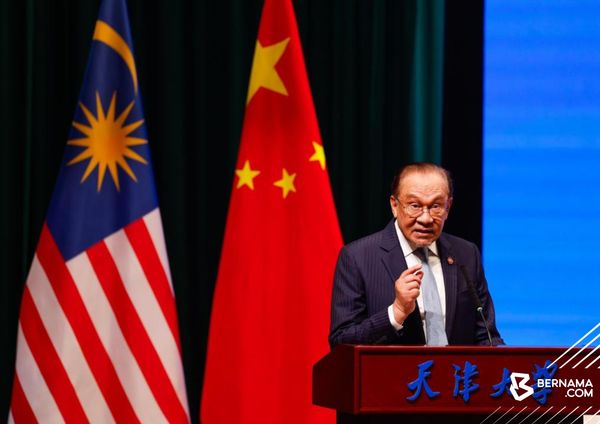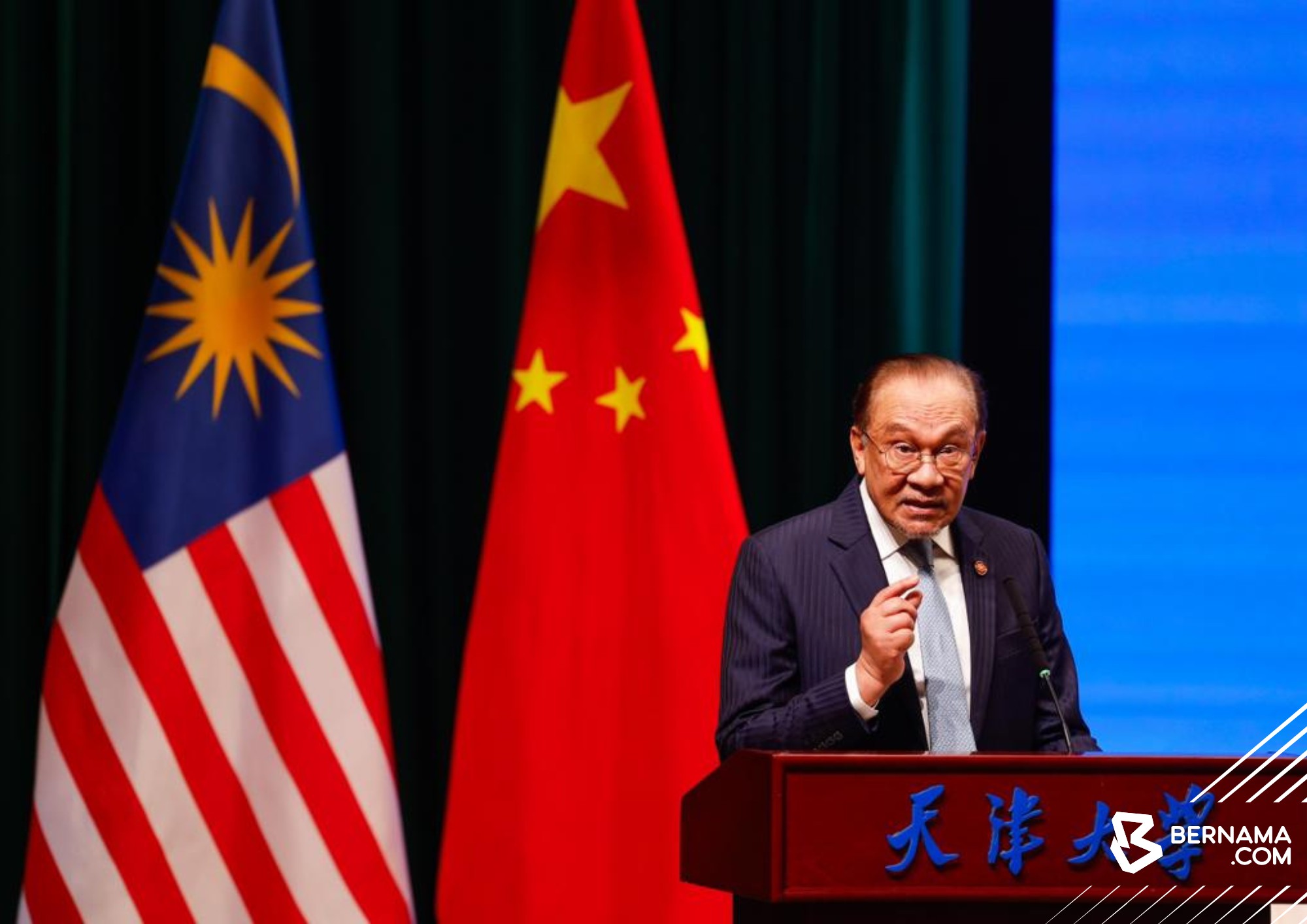TIANJIN (China), Sept 1 — Asian nations must take the lead in the next chapter of the global economic order by assuming responsibility to chart their own path and shape the future.
Prime Minister Datuk Seri Anwar Ibrahim said the current global economic landscape, marked by persistent and unsettling disruptions and deepening fragmentation, should provide opportunities to enhance cooperation among nations.
Anwar, who is also the finance minister, said Asia’s task is to ensure that today’s disruptions serve as a prelude to greater unity rather than a preface to deeper estrangement.
“Asia is the engine of global growth, home to the majority of the world’s young, and the centre of many of the most dynamic technologies.
“We are not merely the objects of other people’s strategies. We are the authors of our own destiny,” he said in his public lecture held at Tianjin University here today.
The prime minister said the global economy has been reordered three times since the mid-twentieth century.
The first reordering occurred at Bretton Woods in 1944, where the world economy was anchored to a dollar backed by gold. The second reordering came in 1971, when the United States abruptly ended that link, leading to a new age of capital liberalisation and, soon after, the establishment of the G-7.
“The third reordering is unfolding before our eyes: one marked by tariffs proclaimed as ‘Liberation Day’, by the weaponisation of trade, and by a growing impatience with the institutions of the post-war era.
“Each of these reorderings was scripted far from our shores. Asia was present, but it was not the author,” he said.
As Asian nations chart their own course, Anwar stressed that this is crucial, warning that fragmentation carries real costs.
Citing the International Monetary Fund (IMF), he said severe trade fragmentation and technological decoupling could cost some countries up to 12 per cent of their national output.
This, Anwar said, makes emerging economies especially vulnerable.
The public lecture titled "Sovereign Interdependence: Building a Shared Future in Asia” was held as part of his engagements with students and academics during his four-day visit to Tianjin and Beijing, which began on August 31.
The prime minister’s four-day working visit to China is his fourth visit to the country since assuming office in November 2022.


